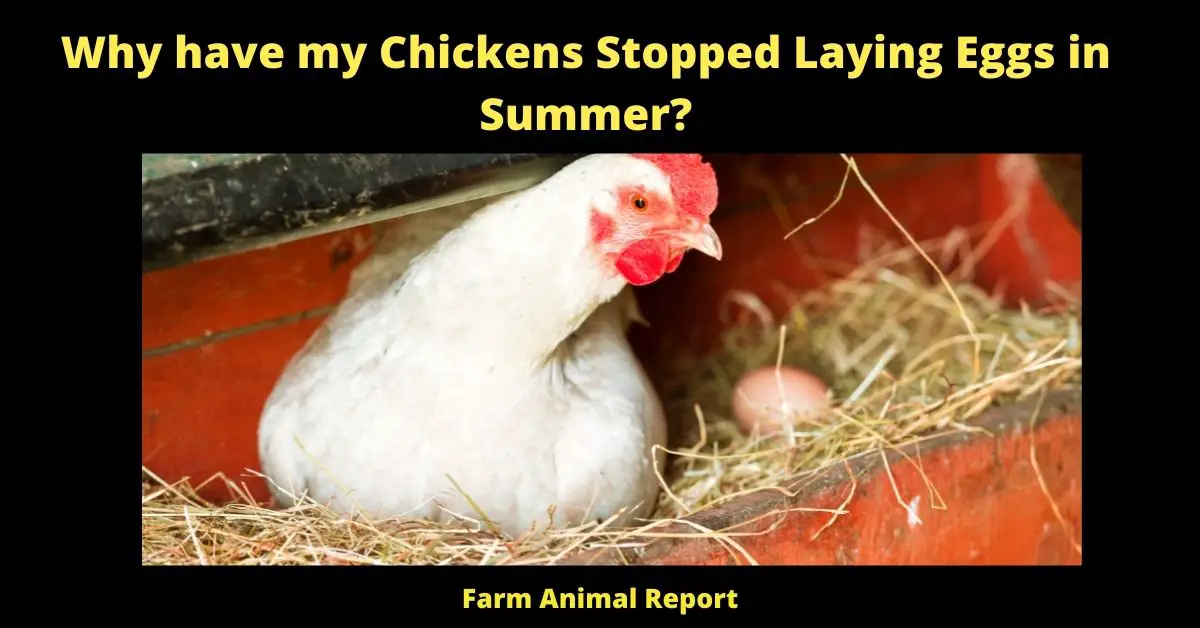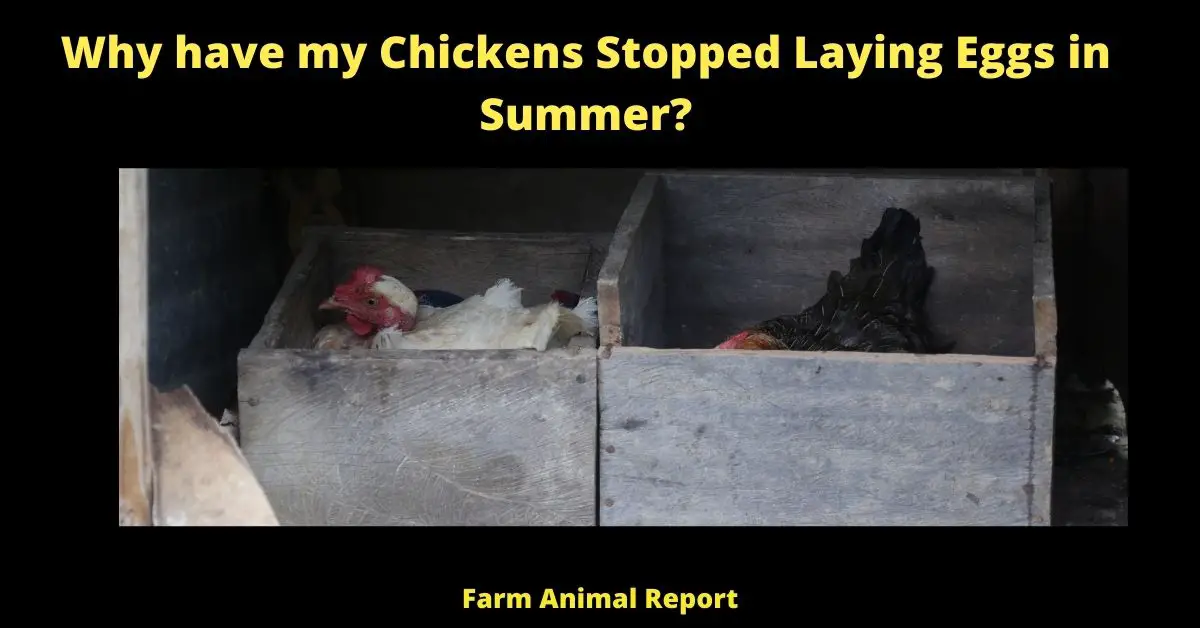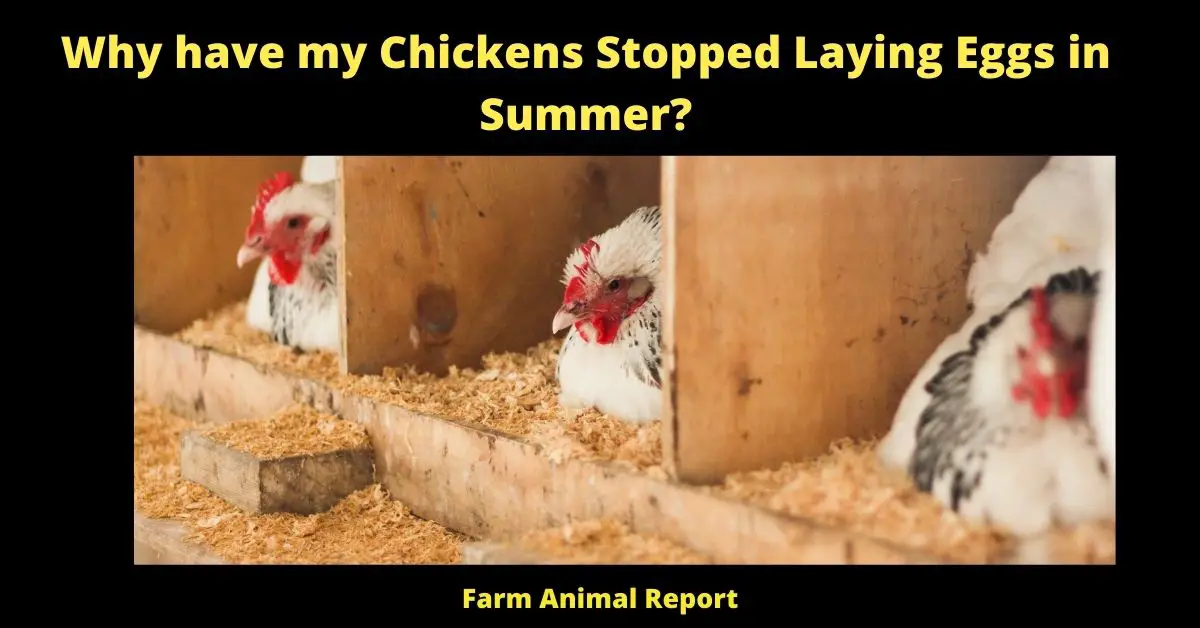As the daylight hours decrease in late summer/early autumn, hens will naturally reach the end of their laying cycle and start to replace their feathers as they molt. Hens lay best in temperatures roughly between 50-75 degrees Fahrenheit. In the heat, chickens reserve their energy and stop laying eggs.
Why have my Chickens Stopped Laying Eggs in Summer?
Chickens stop laying eggs when it starts getting too hot out. The weather needs to be cooler, around 60 degrees Fahrenheit/15 Celsius or lower for the hens to lay their daily egg. If you notice that your chickens are not laying any eggs in the summer months, there may be issues with other environmental factors at play such as a lack of food and water.
Jump to 12 Ways to Make Money by Chicken Farming **CHARTS**
Make sure the chickens have a good diet with plenty of protein/food, such as bugs or seeds from your yard.-Give them access to fresh clean drinking water at all times!-In order for a chicken’s reproductive system to work properly they need natural sunlight every day. Make sure that you are providing your chickens with at least 12 hours of sunlight every day. Why have my Chickens stopped Laying in summer?

If you have a rooster, they will need to be crowing in the morning in order to stimulate egg production in the hens. If there is no rooster present, then artificial light can also help stimulate egg production.-Lastly, make sure that your chicken coop is in a shady spot and has proper ventilation to keep the chickens cool.
Check Out Amazon for Educational Resources for Breeding Chickens
What do you think will happen if hens stop Laying Eggs?
There is no harm to hens if they stop laying eggs. The harmful thing is if you don’t take care of them well, the hens may not be in good health and diseases can affect them. If your chickens have stopped laying eggs this summer then you need to keep a check on their water supply because during hot weather it may get dry easily so ensure that there is always available water for them to drink. Chickens will lay eggs all year round if they have constant access to food and water, however, their production will slow down in the summer months.
This is natural as hens are designed to produce more eggs when it’s cooler so that they can incubate them during winter. If you’re noticing that your chickens have stopped laying eggs, don’t worry, it’s just their way of telling you that they need a break.
Why Have My Hens Stopped Laying?
- A few of the reasons hens stop laying are:
- They may be getting too old.
- They may be molting, which is a normal process that all hens go through every year. It usually happens in the fall or winter.
- The weather may be too hot or too cold for them to lay eggs.
- There could be something wrong with them and they need to see a vet.
- They may be too stressed out from changes in their environment, like being moved to a new coop or having new chickens introduced to the flock.
- Lacking enough water
- Lacking enough nutrition
- Lacking enough Daylight Hours
If you’re not sure why your hens have stopped laying, it’s best to consult with an expert. A local farm store or poultry veterinarian can help you figure out what’s going on and how to get your hens back to laying eggs.
Why do Chickens stop Laying eggs in the fall?
In the fall, chickens stop laying eggs because the daylight is getting shorter. Once this happens, their bodies start producing a hormone that tells them it’s time to prepare for winter!
Chickens will lay more and/or larger eggs in the spring, summer, and early fall because that’s when they have longer days with more light – but smaller or fewer eggs in the winter.
Don’t be discouraged! If you only have one or two chickens, they may not lay as many eggs as a big flock. You’ll most likely still get some delicious and nutritious eggs from your hens during those cold months – even if it is just one egg every few days!
Why Chickens stopped Laying Eggs suddenly?
There can be many reasons that chickens will suddenly stop laying some are:
- Fear – Stress – visits from a predator –
- being moved to a new location – weather changes.
- One of the most common reasons for chickens stopping production is that they are simply getting too old. Once a hen reaches her fourth year, egg production will slowly taper off until she eventually stops laying altogether.
- Other factors such as molting,
- broodiness and
- Diseases can also lead to Decreased egg production.
- Daylight
- Sudden diet changes
- If you’ve ruled out all of the above reasons and your chickens are still not laying eggs, then it’s possible that they may be experiencing a lack of daylight. Chickens need around 14 hours of sunlight per day to continue producing eggs. If there is not enough natural light available, you can supplement it with artificial light.
- If you’ve made changes to your chickens’ diet recently, that could also be a reason for the decrease in egg production. Chickens need a balanced diet of protein, carbohydrates, vitamins, and minerals in order to lay eggs. A sudden change in their diet can throw off their system and lead to decreased egg production.
- Ventilation
- If you’ve recently made changes to your coop such as adding windows or increasing ventilation, that could also be the reason why your chickens have stopped laying eggs. Chickens need a cool, comfortable place to live in order to lay eggs and when the environment is too hot or drafty, they will stop production.
- Note any changes that you have made as clues to the reason
Will Chickens stop laying if Coop is Dirty?
Usually, a chicken’s dropping will not cause them to stop laying eggs. However, if the coop is too dirty or the chickens have no access to clean water, they may stop laying eggs.
If you’re having trouble getting your chickens to lay eggs, make sure their living conditions are as comfortable and conducive to egg-laying as possible.
Chickens need to be in a secure coop at night, but during the day they should have access to fresh grass and sunshine.
They also need clean water and food, free from pesticides or chemicals. If you’re worried your chickens aren’t laying eggs because of something you’re feeding them, check our chicken nutrition guidelines for more information.
How to get Chickens to Lay Again?
- These are something you can try to stimulate egg production:
- Make sure your hens are getting enough light. Chickens need 14 hours of light per day to produce eggs. Supplement natural light with artificial light if necessary.
- Increase the number of protein in their diet. Add more animal feed or scratch grains to their food.
- Let them roam free-range as often as possible.
- Add a supplement such as SeaMeal to their chicken feed. This will increase the amount of calcium and other minerals in their diet, which should help them produce more eggs.
- Check security. Make sure there are no foxes or other predators around your coop.
- Keep their water supply full and clean. A dirty water container may be discouraging them from drinking, which will have a negative impact on egg production.
- Check for illness or disease if one of the hens stops laying eggs suddenly- this could easily be transmitted to the rest of the flock.
- If all of these measures fail, you may just have to wait until winter when egg production naturally slows down.
- So, there are a few things you can do to try and get your chickens back into laying mode again. Keep in mind that some hens simply stop laying eggs in the summer months, for no known reason. But, if you try these tips and they still don’t lay eggs, it may be worth considering getting a new flock of hens in the fall. Jump to What do Baby Chickens Eat **BREAKFAST**
What to Feed Chickens to Make Them lay Eggs?
The best nutrients for laying hens are 16% protein, calcium, and vitamin D. A diet that is deficient in any of these nutrients can cause a decrease in egg production. Feeding your chickens a balanced ratio will help them to produce eggs regularly all year long.
What are some common feed ingredients that provide these essential nutrients? Soybean meal, corn, wheat, and oats are all common grains used to provide calcium, protein, and energy.
What are some signs of a Nutritional Deficiency?
If you notice your hens have started eating less or seem listless, they may be suffering from a nutritional deficiency. Make sure there is constant access to food for them so that it can eat as much as needed when it is feeling hungry.

What can I do to Improve their Diet?
If you notice your hens are producing fewer eggs, it may be a good idea to add supplements into the ration such as oyster shells, limestone or diatomaceous earth for better calcium intake and mineral balance in the hen’s diet. If this does not help, you may need to add more protein-rich ingredients such as soybean meal.
What is a supplement? A supplement is an addition of nutrients into the diet that are not normally found in it, which makes up for any nutritional deficiencies. Some common supplements include oyster shells or limestone for calcium and diatomaceous earth for mineral intake.
Most feed mills sell laying hen feeds, which are specially formulated to meet all their nutritional needs for better egg-laying.
How much feed should I be giving my chickens?
Both the age and size of your hens affect how many rations you should give them each day. If they are young, between six months and one year old, then you can allow about three pounds of feed per bird. If they are older, over one year old, you should allow about four pounds of ration per hen each day. Jump to Can Baby Chickens Eat Bread? **Ultimate Guide**
Final Thoughts – Why have my Chickens Stopped Laying Eggs in Summer?
In summary, making sure your hens are getting enough light, protein, and calcium in their diet will help them lay eggs regularly. If you notice a sudden change in egg production or behavior, it may be worth checking for any nutritional deficiencies that can easily be fixed by the addition of supplements into the hen’s diet.
For more information on feeding laying hens check out these resources:
Feeding laying chickens – Penn State Extension
Laying Hen Nutrition – Michigan State University Department of Animal





